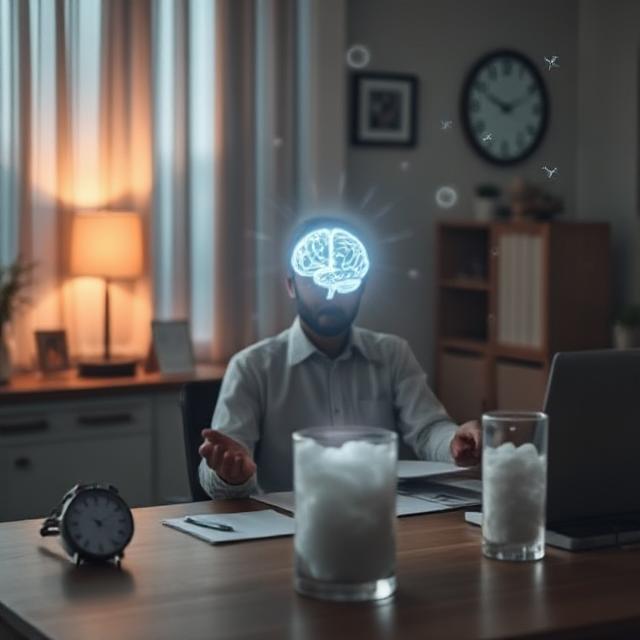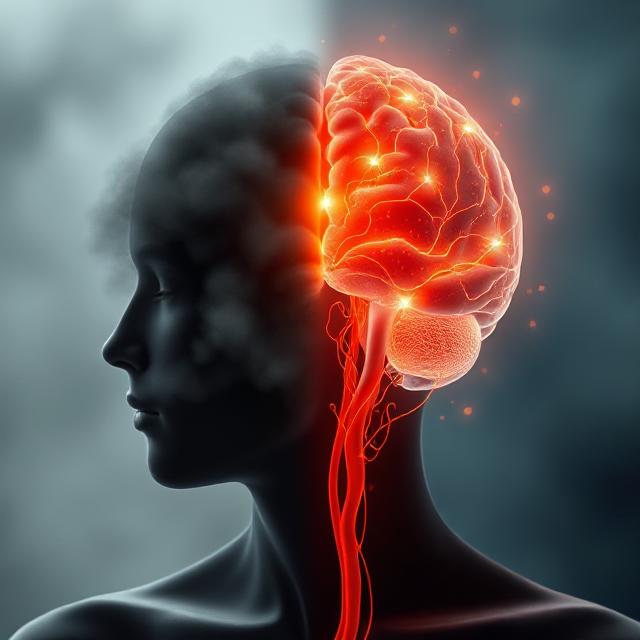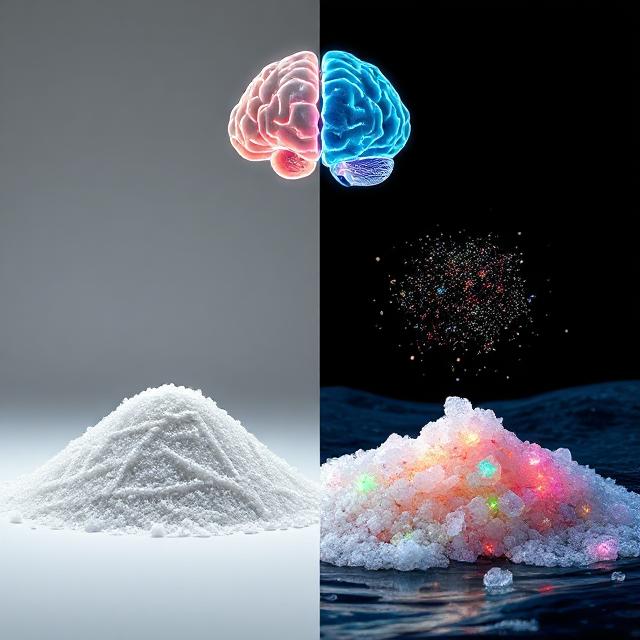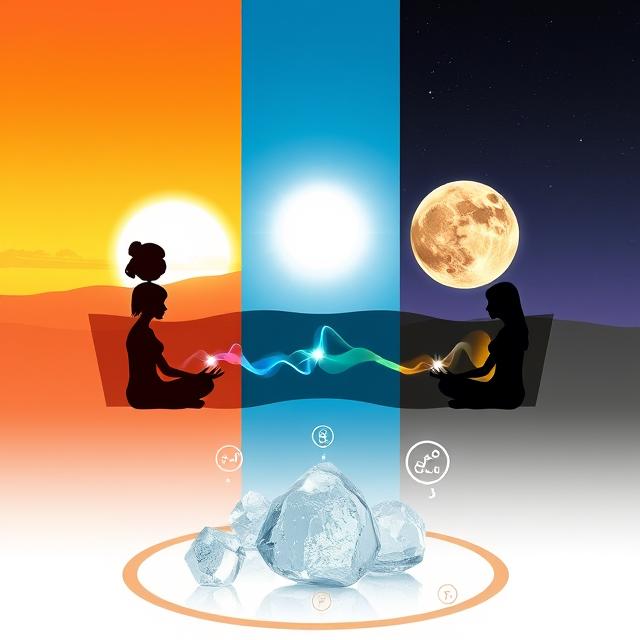Table of Contents
Salt, Sodium, and Brain Fog: What You Need to Know
You’ve slept well. You’ve eaten clean. But your mind still feels cloudy, your thoughts slow, and your focus fades. This isn’t a motivational issue—it might be sodium deficiency.
Yes, salt—the nutrient we’ve been taught to fear—could be the missing link between you and mental clarity.
In this article, we dive into the connection between salt, sodium, and brain fog, and how strategic sodium intake can sharpen your cognition, stabilize energy, and reboot your mental performance.
Why Sodium Matters for the Brain
Sodium is an electrolyte, a charged mineral that helps regulate fluid balance, nerve transmission, and blood pressure. But in the brain, it serves a more electric purpose:
- Supports neuron firing and signal transmission
- Maintains blood flow and cerebral perfusion
- Regulates fluid balance in cerebrospinal fluid
- Influences mood, alertness, and energy levels
When sodium levels drop too low—whether from overhydration, a low-salt diet, or extended fasting—the brain feels it first.
Salt ≠ Sodium: Know the Difference
Salt (sodium chloride) is about 40% sodium by weight. So 1 gram of salt contains ~400 mg of sodium.
Most of your body’s sodium comes from dietary salt, but when you dramatically reduce salt—especially while drinking lots of water—you dilute this essential electrolyte. This can lead to a condition called hyponatremia (low sodium concentration in the blood).
Symptoms of Low Sodium and Salt Deficiency
- Brain fog or mental dullness
- Lightheadedness or dizziness, especially when standing
- Fatigue and weakness
- Headaches
- Cravings for salty or processed foods
- Anxiety or restlessness
These symptoms often masquerade as sleep deprivation or overwork—but they may stem from simple sodium depletion.
Why Modern Lifestyles Deplete Sodium
- Drinking excess water without electrolytes
- Low-sodium diets (especially combined with fasting or keto)
- Exercise and sweat loss without proper salt replacement
- High-stress states (which burn through adrenal reserves)
- Alcohol or caffeine overuse, which can increase urination
Ironically, many people trying to be “healthy” are doing things that flush out their most important electrolyte.
The Sodium–Cognitive Performance Loop
| Low Sodium | Resulting Brain Symptoms |
|---|---|
| ↓ Blood volume | ↓ Oxygen delivery to brain (fatigue) |
| ↓ Neural signaling | Brain fog, poor memory |
| ↓ Electrolyte charge | Slowed reaction times, sluggish focus |
| ↑ Cortisol | Anxiety, racing thoughts, poor clarity |
You can’t fix this with more coffee or willpower. You need to remineralize.
How to Fix Brain Fog with Strategic Salt
Start Your Day with Salted Water
- Mix ½ tsp of sea salt or Himalayan salt in 16 oz warm water with lemon.
- This improves morning energy, restores plasma volume, and supports adrenal function.
Add Salt to Whole Foods
- If your meals are homemade and unprocessed, don’t be afraid to salt to taste.
- Focus on high-mineral salts like Celtic, Himalayan, or Redmond Real Salt.
Use Electrolyte Powders When Fasting or Sweating
- Choose blends without sugar or synthetic dyes.
- Aim for ~1000–2000 mg sodium during long fasts or heavy sweat days.
How Much Sodium Do You Really Need?
The RDA recommends 2,300 mg/day, but that number was designed to reduce hypertension—not optimize cognition.
Optimal sodium needs vary by person, but most active individuals (especially on low-carb diets) do better with 3,000–5,000 mg/day, which is about 1.5–2.5 teaspoons of salt.
Note: Always consult a physician if you have high blood pressure or kidney disease.
BrainWaveBoost Insight
Sodium doesn’t just flavor food—it charges neurons. It governs the voltage of your thoughts, the rhythm of your heart, and the sharpness of your mind. If you’re eating clean, drinking water, and still foggy… you may be diluting your brain’s ability to think.
Sample Salt Protocol for Cognitive Clarity
| Time | Action |
|---|---|
| Morning | ½ tsp salt + lemon in water (before coffee) |
| Pre-Workout | ¼ tsp salt + small carb source |
| Afternoon | Lightly salt lunch with sea salt |
| Evening | Add salt to bone broth or warm herbal tea |
Conclusion
Brain fog doesn’t always mean burnout. Sometimes, it means you’re under-mineralized. Salt and sodium are foundational to cognitive function, fluid balance, and focus—especially in the modern world of filtered water, clean diets, and overstressed minds.
Bring back balance. Start with salt.
References
- Gropper & Smith. Advanced Nutrition and Human Metabolism, 7th Ed.
- Journal of Neuroscience, 2021: “Sodium Modulation and Neural Activity”
- NIH: Sodium Intake and Health




